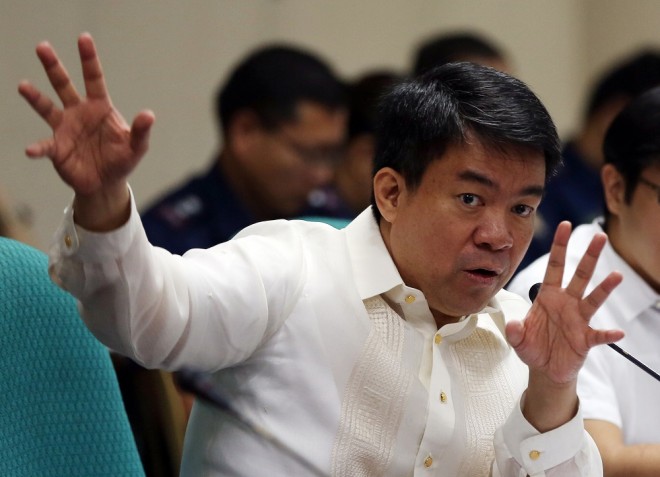Sen. Aquilino “Koko” Pimentel III on Friday threatened to question the legality of the proposed mall voting all the way to the Supreme Court even as the Commission on Elections (Comelec) moves closer to approving the initiative for the May 2016 polls.
In an interview on the sidelines of “Elect Protect Road Show” of the poll watchdog Democracy Watch, Pimentel said he believes mall voting does not have any legal basis and should not be implemented.
“Voting must be done in a public property, in a public place, so that no private person controls the access to the area. Hence, if a private person has control over a certain area, that person could put obstacles in the exercise of the rights to vote,” said Pimentel, chair of the Senate electoral reforms and people’s participation committee.
Pimentel noted that the Omnibus Election Code (OEC) does not provide the utilization of malls as polling places since these are privately owned establishments.
Section 42 of the Omnibus Election Code states that polling places must be public schools or any other public buildings within the barangay. But the law also provides that in case there is no public school or other public building that can be used as polling places, other appropriate private buildings may be designated.
Pimentel said such “extreme” or “emergency” situation does not exist since there are many available public schools that can still be used and election day is still six months away.
Pimentel said he has already asked the Comelec to submit a memorandum citing the legality of mall voting.
“If I will not be convinced, then I will issue a warning to the Comelec not to pursue it…It would be better if they just concentrate on the machines, on the canvassing system, they have a big problem with that,” the senator said.
Earlier, the Comelec said the mall voting initiative has already been approved “in principle” by the commission en banc.
Comelec Chair Andres Bautista, in a separate interview, said the poll body is prepared to defend the mall-based voting initiative as it is determined to enhance the voting experience of Filipino voters.
The poll agency’s law department declared that there are enough legal grounds to push through with the initiative, particularly Article IX of the 1987 Constitution, which provides the Comelec the power to determine the location of polling places, Bautista said.
